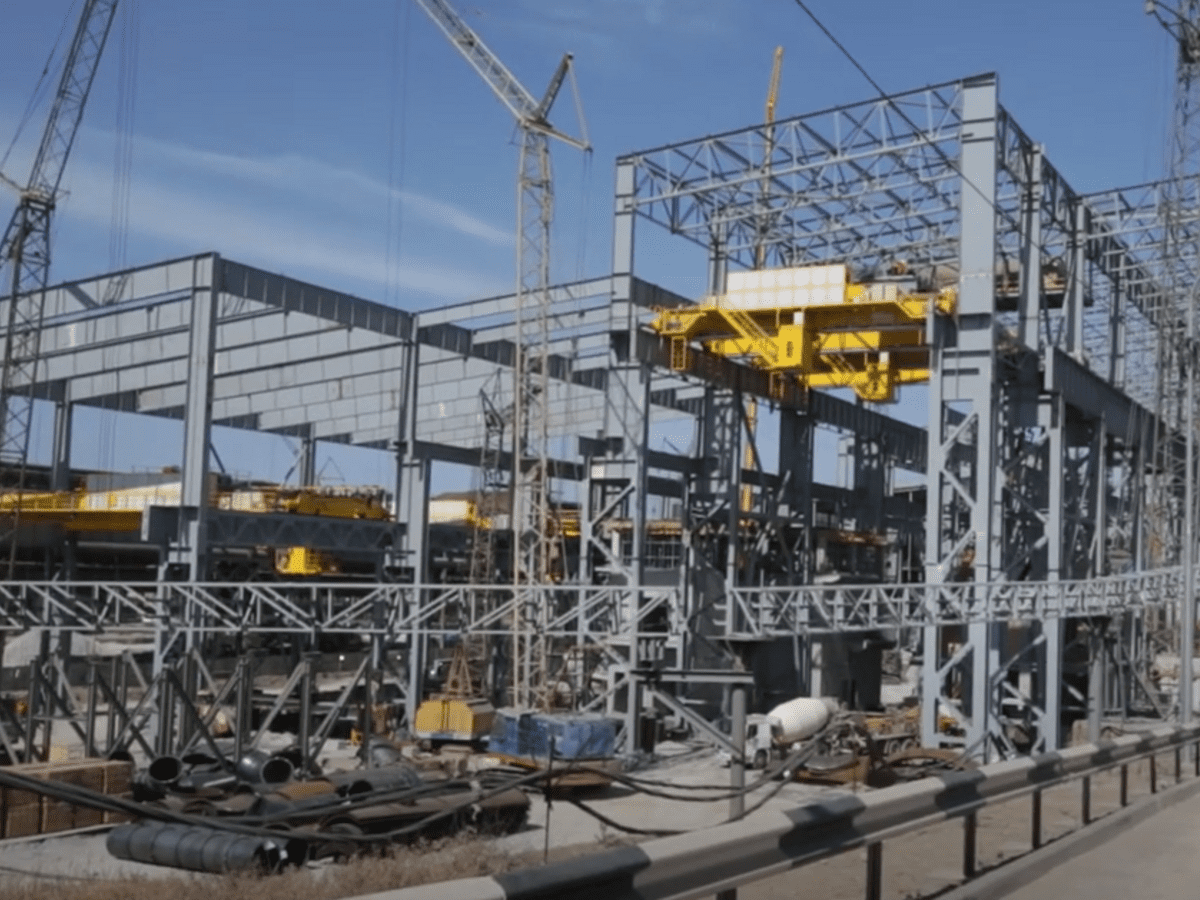Rampant extractive, exploitative capitalism is rearing its ugly head – but this time, it’s over the transition to greener, cleaner energy. As the world grapples with the transition away from fossil fuels to tackle the climate crisis, nations have been on the hunt for the vital minerals needed to power this shift to renewable technologies. Now, a new report has exposed over 400 abuse allegations tied to these transition minerals across Eastern Europe and Central Asia.
Transition minerals: a litany of abuse allegations
On Tuesday 30 April, the Business and Human Rights Resource Centre published a damning new report. Specifically, this identified a litany of abuse allegations linked to the development, extraction, and processing of transition minerals in countries across Eastern Europe and Central Asia (EECA).
In the report, the Centre identified 20 critical transition minerals. Effectively, these are materials that manufacturers use for renewable energy technologies. This includes minerals for battery and other components to produce EVs. For example, this included minerals like copper, iron, lithium, and zinc.
Of course, these minerals are vital as countries ramp up efforts to shift away from climate-wrecking fossil fuels. Invariably, nations are turning to green technology in order to meet their domestic and international climate commitments. At COP28, nations agreed to triple the global capacity of renewables this decade. As the Canary’s HG reported however, the big players at the G7 are currently falling short of this pledge. Nonetheless, as countries make moves in this direction, the pressure for supplies of transition minerals will creep up.
However, it’s in this context that the Centre has previously revealed a shocking litany of abuse allegations over transition minerals in other regions. As the Canary previously reported for instance, a report it produced in March 2023 on the Andean region of South America revealed that:
corporations are inflicting damage on the environment and the territories of peasant farmers and indigenous peoples.
Similarly, a separate Business and Human Rights Resource Centre analysis from May 2023 revealed that mines in the Philippines and Indonesia had impacted the health of nearby communities.
Now, the Centre has turned its attention to the EECA region, which is fast becoming a new hotspot for Europe’s supply.
Harming workers and communities
Titled ‘Fuelling injustice: Transition mineral impacts in Eastern Europe & Central Asia’, the report looked at the human rights and environmental abuses linked to transition minerals in the EECA region.
Alarmingly, it identified a total of 421 allegations of abuse across 16 countries between 2019 and 2023. It documented allegations in the following: Albania, Armenia, Azerbaijan, Bosnia & Herzegovina, Bulgaria, Georgia, Kazakhstan, Kosovo, Kyrgyzstan, North Macedonia, Montenegro, Russia, Serbia, Tajikistan, Ukraine and Uzbekistan.
The allegations detailed a number of human rights and environmental impacts such as labour rights violations, air, soil, and water pollution, and harm to the health of people living and working near mining and processing infrastructure.
Of course, workers and communities bore the brunt of these human rights and environmental abuses. Allegations impacted workers in 185 instances, with communities hot on their heels at 178 cases.
As the report noted, for communities these allegations mostly caused environmental impacts, such that:
Water pollution accounted for 29% of all impacts on communities, closely followed by air pollution (27%) and soil pollution (22%).
Alongside this, mining and mineral processing also impacted local community livelihoods in 16% of the allegations. These included reports of:
roads destroyed by open quarries, damaged or collapsed houses, pollution of agricultural and grazing lands, and water contamination.
Overall, occupational health and safety violations was the top human rights impact associated with transition mineral mining in the region, accounting for 64% of all impacts on workers.
On top of this, the report found workplace deaths linked to 28% of allegations impacting them, with 52 recorded allegations. Meanwhile, workplace injuries (18%) were also a major concern. Further to this, labour rights issues accounted for 20% of allegations. These included, among other issues, unpaid and underpaid wages, access to information about terms of work contracts, workplace discrimination, long working hours and violations of freedom of association.
Europe’s drive for transition minerals
Since Russia invaded Ukraine, Europe has been attempting to cut its dependence on it for its source of transition minerals. However, despite a mass of sanctions, it has continued to to plough billions into mining companies linked to the Kremlin.
For instance, investigative outlet Investigate Europe found that Europe imported critical minerals to the tune of €13.7bn between March 2022 and July 2023. And the Centre’s new report has laid out the human costs of this.
Notably, Russia topped the analysis for the number of abuse allegations, at 112 reports associated with transition mineral mining and processing.
In March, the EU Commission put forward its proposals for the Critical Raw Materials Act (CRMA). Ostensibly, this is partly in response to the EU’s growing need for critical minerals for the green energy transition. Notably, the bloc currently relies on supplies from Russia and China and wants to change this.
Given this, the CRMA plans to break this dependency and aims for instance for:
- Extraction from Europe to meet 10% of the EU’s consumption
- Processing capacity to meet 40% of its consumption
So, as part of this CRMA strategy, the EU is seeking ‘strategic partnerships’ with other mineral-rich nations.
It has already signed strategic partnerships with two countries in the EECA region (Ukraine and Kazakhstan). As well as this, it has initiated negotiations on a strategic partnership with Uzbekistan.
However, non-profits have already raised their concerns over these. In particular, they have noted the lack of transparency and consultation with local communities. In tandem with this, they pointed out the agreements’ insufficient human rights protection safeguards and responsible business conduct requirements.
For example, in a briefing, they highlighted that:
In the draft CRMA, the language on environmental impacts, human rights and engagement with local communities remains vague, failing to mention key international instruments or standards.
In addition to this, they underscored how:
Efforts to analyse Strategic Partnerships are hampered by a concerning lack of transparency in negotiations and the lack of an inclusive, deliberative, truly participatory, consultation process. Communities impacted by mining, and trade unions, environmental and human rights NGOs have not been consulted, and key stakeholders have had to rely on press releases with incomplete information
Exposing the “scale and severity of human rights abuse”
As such, the new research points to the urgent need for significant changes in the EECA mining sector. Crucially, this will be vital if countries are to achieve a fast and fair energy transition.
Senior researcher for Eastern Europe and Central Asia at the Business & Human Rights Resource Centre Ella Skybenko said:
While we can all agree the rapid transition to clean energy is essential for the survival of our planet, it is extremely concerning to see this happening at the cost of further harm to human rights and the environment. Our research exposes the scale and severity of human rights abuses and environmental damage caused by mining and processing transition minerals in EECA. The companies responsible for this must no longer be able to enjoy impunity.
A just transition to clean energy must centre on three core principles: shared prosperity, human rights and social protection, and fair negotiations. Disappointingly, in the EECA region, all three of these principles are currently missing when it comes to transition minerals project development, extraction and processing. There is an urgent need to transform existing business models in the EECA extractive sector if we are to ensure the transition to clean energy is just and sustainable – and does not come at the expense of people and the environment.
Ultimately, the green energy transition should be just and fair. However, the new report shows that while the usual extractive capitalists are in the driving seat, it’s a far cry from either.
Feature image via Youtube – Kyiv Post




